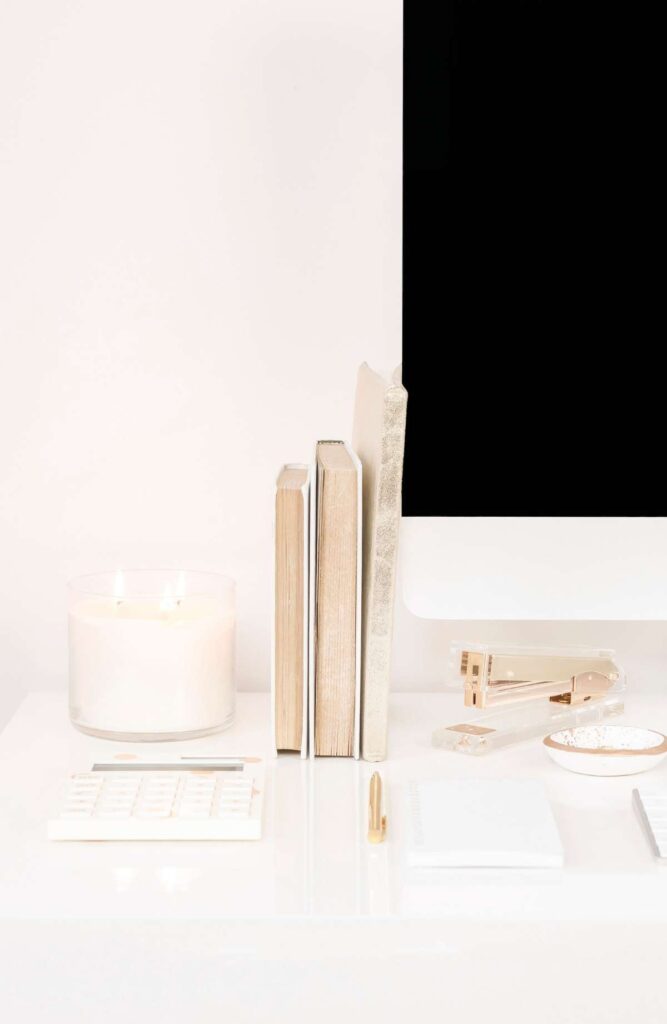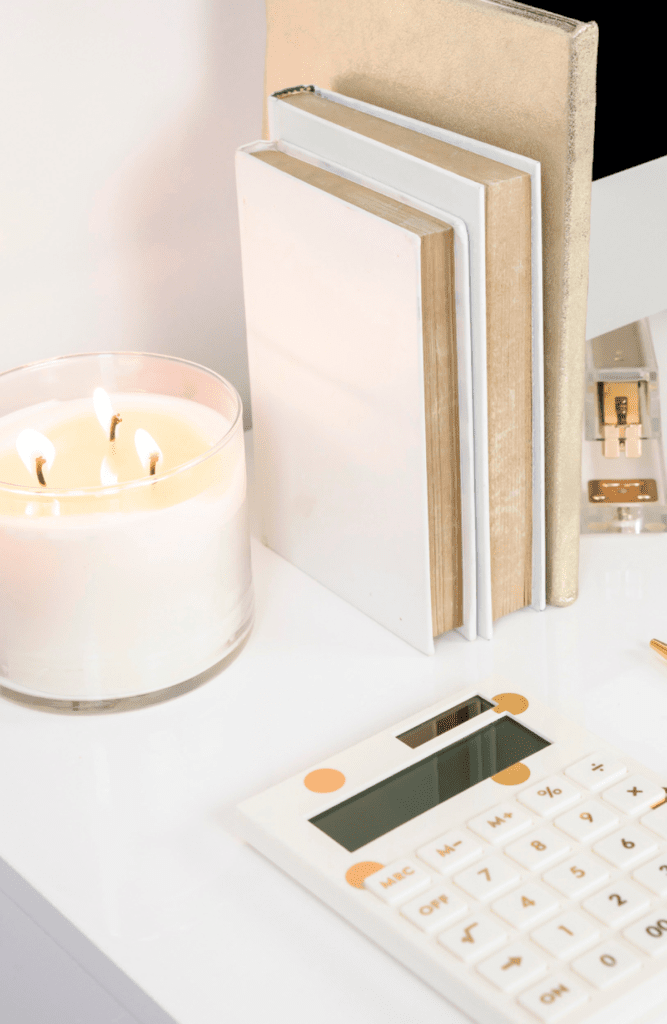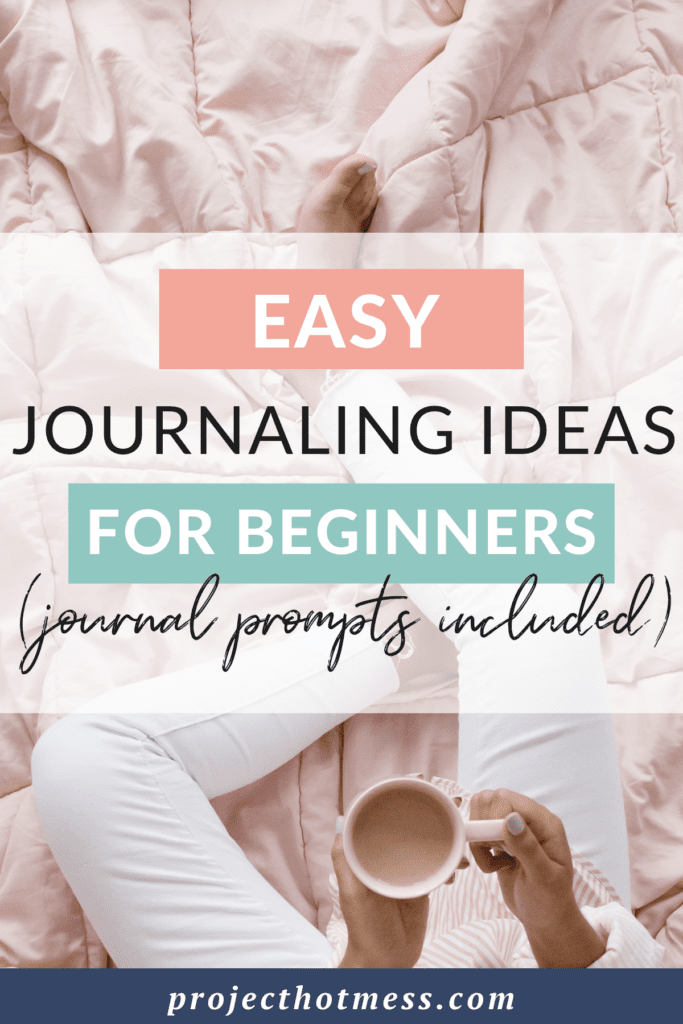Easy Journaling Ideas For Beginners (Journal Prompts Included)
When you first start entertaining the idea of journaling, it seems incredibly straightforward. You simply sit and you write. Right? Then you start researching journaling and you’re suddenly in this world of intricate layouts, fancy pens on acid-free paper, washi tape, and something called bullet journaling.
It can all be, well… a little overwhelming.
Therin lies a whole heap of irony too – journaling, which is designed to be relaxing and mindful, can in itself lead to overwhelm and stress.
But it doesn’t have to, and it shouldn’t.
The best thing to do when you’re starting out journaling is to keep things simple. Especially if you’re journaling to help with mental health – sometimes the overwhelm of all the decisions and possibilities can make the idea of journaling just too much. The best way to start is by keeping things simple, and creating a personal journal.
Which, if you know me at all, is also a little ironic as I am the first person to go all-in on a task, buy all the fancy things, plan it all out…. but then get so overwhelmed I end up giving up…
I don’t want that for you!
This is why I’m sharing with you some easy journaling ideas for beginners that can get you started, and help you to start seeing the benefits of journaling, without all the overwhelm and stress.

Different Types of Journals
While I’m a diehard notepad and pen kind of journal lover, I totally understand this isn’t the best method for everyone.
Here are a few different journaling ideas to get you thinking of different ways you can journal, but remember, simple is best.
1 – Notebook and Pen
The classic and most simple way to start journaling is to grab a notebook and a pen and start writing. You can use writing prompts to get you going (see below) or just let the words flow and write whatever comes to mind.
It is a good idea to have a dedicated notebook for your journal, just so you can get into the habit of using the same tools, and so you aren’t searching for scraps of paper to write on.
Treat yourself to a beautiful notebook that you love and will be excited to write in each day.

2 – Morning Journal
One of my favorite ways to start the day is to journal first thing in the morning.
I start by writing out a few things I’m grateful for, and then write about anything that’s on my mind – plans for the day, concerns, frustrations, goals…. It takes me 5 minutes tops and makes me feel ready for whatever comes my way that day.
Starting the day with your morning pages can be a good practice to get into, especially if you’re working on establishing a good morning routine. If you’re journaling for the first time and you’re wanting to make a new habit of it, then getting your daily practice in each morning is a great way to start (and hopefully stick with) journaling.

3 – Evening Journal
If you find it hard to journal in the morning, or if you just prefer to wind down at night, try evening journaling instead.
Just before bed, write out a few things you did that day that made you happy, any goals or plans for tomorrow, and anything else that’s on your mind.
You can use writing at the end of the day a way to journal a ‘daily log’ of sorts, and simply detail what you’ve done for the day and how you’ve felt about your day.
This is a fun way of keeping track of all the amazing things you’ve done, and is more in line with traditional journaling.

4 – Gratitude Journal
A gratitude journal is a great way to focus on the positive things in your life and is perhaps one of the easiest journals and better habits you could create.
Every day, write out 3-5 things you’re grateful for. You don’t have to stop at 3-5, you can create an entire gratitude list if you’d like, but writing out just a few can be an easy way to start.
They can be big or small – from getting a promotion at work, to finally finishing that book you’ve been reading for months, to simply having a good hair day.
Focusing on the good things in your life can help to shift your mindset and make you more resilient when things get tough.
Gratitude journaling is a great way to get into a regular journaling habit and can be as simple or as detailed as you’d like.
You might also like: 31 Daily Gratitude Journal Prompts – Mindful Journaling Practice
5 – Video Journal
Video journaling is a great way to express yourself, and it can be incredibly therapeutic too.
Record yourself talking about whatever you like – your day, how you’re feeling, what’s on your mind.
This is particularly good for people who don’t like writing or who struggle to get their thoughts down on paper, and prefer to talk instead.
Keep it simple and hit record on your phone, or use an app to record and keep track of your video journal entries.

6 – Bullet Journal
If you’re the kind of person who loves planning and organizing, then bullet journaling might be for you.
A bullet journal is a notebook where you can plan out your days, weeks, and months, as well as track goals, habit progress, and pretty much anything else you can think of.
The great thing about bullet journaling is that you can make it as simple or as complicated as you want – but remember to try and keep it as simple as possible when starting out.
You can find lots of helpful tutorials and examples online, as well as a ton of specific bullet journal notebooks, and a whole range of bullet journal ideas.
These are particularly good if you’re a creative type of person who likes to have full control over how your journal looks. You can add all kinds of extra pages in like a monthly calendar or a mood tracker to go with your journaling practice.
Just remember, keep it simple to start. Bullet journaling can quickly become the focus when really, we want the actual journaling practice to be the focus.

7 – Travel Journal
If you love to travel, or even if you just go on the odd weekend away, consider keeping a travel journal.
This can be in addition to your regular journal, or you may find it easier to write about your adventures when they’re fresh in your mind.
8 – Project Journal
If you’re working on a big project, whether that’s a work project, home renovation, or anything else, it can be helpful to keep a journal to track your progress.
This is especially useful if the project is taking a long time, as it can be easy to get discouraged when you don’t see much progress being made.
Writing about your progress can help to keep you motivated and make it easier to see all the little accomplishments along the way.
It’s also a really great introduction to journaling because you have a specific topic with specific progress to talk about.

9 – Life Purpose Journal
If you’ve ever felt lost or like your life lacks meaning, starting a life purpose journal might help.
This is simply a journal where you write about the things that are important to you – your goals, values, and hopes for the future.
You can use dedicated journal prompts for self-discovery that can help you to find your life purpose and what is important to you, or you can simply write what comes to mind when you think of your life and where you want it to go.
Read More: 222 Journaling Prompts: Writing Ideas For Creative Self Discovery

10 – Health and Wellness Journal
If you’re trying to improve your health and wellness, whether that’s through healthy eating, exercise, or other lifestyle changes, it can be helpful to keep a journal.
This can be a great way to track your progress, as well as any setbacks you might encounter along the way.
It’s also a good way to document how you’re feeling – both mentally and physically – as your health improves.
There are lots of different ways you can approach a health and wellness journal, so find what works best for you.
You might want to simply write about your day-to-day experience, or you might prefer to focus on specific topics like healthy eating or exercise.
Whatever you decide, make sure to be honest with yourself and don’t be afraid to write about the good and the not so good.

11 – Dream Journal
Do you have trouble remembering your dreams? If so, keeping a dream journal might help.
This is simply a journal where you write down your dreams as soon as you wake up.
It can be helpful to keep the journal by your bed so that you can write down your dreams as soon as you remember them, before they fade from your memory.
If you’re not sure what to write, you can find dream interpretation guides online that can help you to understand the symbolism in your dreams.

12 – Five Minute Journal
The five-minute journal is a great way to get into the habit of journaling if you’re finding it difficult to find the time or motivation.
It’s exactly what it sounds like – a journal that you write in for just five minutes a day.
You can do this first thing in the morning, or last thing at night.
You can keep the journal prompts simple – you can just write down three things you’re grateful for, or three things that would make today great, or simply list all the things that are on your mind.
Set a timer for five minutes and see what you can get on the page in that time.
13 – One Line A Day Journal
This is another great journaling idea for beginners, or for people who find it difficult to find the time to journal.
With this type of journal, you simply write one line a day.
It can be anything – a thought, an experience, something you’re grateful for.
The important thing is that it’s just one line.
You can do this for a year, or for five years, or ten years.
It’s a great way to document your life and see how things change over time.

14 – Brain Dump Journal
A brain dump journal is a great way to get all the thoughts and ideas swirling around your head down on paper.
To do a brain dump, simply set a timer for five or ten minutes and write down everything that’s on your mind, without stopping to edit or filter anything.
Let it all out – the good, the bad, the ugly.
After you’re done, you might want to read through what you’ve written and see if there’s anything you want to explore further.
Or you might just feel relieved that it’s all out of your head!
15 -Art Journal
An art journal is a great way to combine journaling with another creative outlet.
You can use any type of journal for this – a plain notebook, a sketchbook, or even a scrapbook.
The important thing is to fill it with things that inspire you – quotes, photos, images, whatever you like.
You can also use the journal to document your own creative process – what inspires you, what works well, and what doesn’t work.
Art journaling is a great way to get your creative juices flowing, and it’s also a lovely way to document your life and experiences.

How To Start Journaling For Beginners
If you’re new to journaling, or if you’re finding it difficult to get started, here are some tips to help you get going:
Pick the right time: If you want to make journaling a daily habit, choose a time that will work for you on a regular basis.
Some people like to journal first thing in the morning, while others prefer to do it at night.
Choose a time of day that you’re likely to be able to stick to, and fits around your busy schedule.
Pick the right place: Choose a place where you feel comfortable writing.
It might be at your desk, or on the couch, or in bed. Wherever you choose, make sure it’s a place where you won’t be interrupted.
Use prompts: If you’re struggling to know what to write, using prompts can be a great way to get started.
Check out the list of journal prompts below to get you started.
Start small: Don’t try to do too much at first.
If you’re finding it difficult to find the time to journal, start with just five minutes a day.
You can always increase the amount of time you spend journaling as you get into the habit.
Be patient: Don’t expect miracles overnight.
It takes time to develop a habit, so be patient with yourself.
If you miss a day, or a week, don’t worry about it. Just pick up where you left off and keep going.

Your journal is your safe space: It can be challenging to pour your heart and soul into your very first entry in your journal, but just remember, your journal is for you. It’s not for your friends or family members to read, it’s not for anyone else, it’s entirely yours.
Just start: The most important thing is just to start.
Don’t worry about doing it perfectly, or about what you’re going to write.
Just pick up a pen and start writing.
The rest will come with time.
You might also like: 21 Simple Journaling Tips For Beginners (Daily Journal Habits)
Journal Prompts For Beginners
When you start journaling, sitting and looking at a blank page can make you want to close your journal and just walk away. Thankfully, when it comes to your journaling practice, you don’t have to do it alone!
A lot of people (myself included) use journal prompts to start off their journal entries. It’s kind of like having a guided journal where you can use these prompts as starting points to help get into the flow of journal writing. Or, like me, you can stick to using them on a daily basis, and enjoy not having to wonder what you’ll write about today.
If you’re not sure what to write about or would like some help getting started, here are some journal prompts you can use:

1. What are you grateful for today?
2. What was the best part of your day?
3. What are your hopes and dreams for the future?
4. What’s something you’re passionate about?
5. What’s something you want to learn more about?
6. What’s a goal you’re working towards?
7. What’s a challenge you’re facing at the moment?
8. What makes you happy?
9. What makes you sad?
10. What are your thoughts on (fill in the blank)?
11. Write about a time when you were proud of yourself.
12. Write about a time when you felt really challenged.
13. What’s your favorite memory?
14. What’s your least favorite memory?
15. What are some things you’re afraid of?
16. What are some things that make you feel good?
17. Write about a time when you had to overcome something difficult.
18. What are some things you take for granted?
19. What’s a time in your life when you really struggled?

20. What’s a time in your life when you felt really happy?
21. What do you think about when you can’t sleep at night?
22. What’s something in your life or in the world you wish you could change?
23. How would you describe yourself physically, emotionally, and mentally?
24. What are your values in life and as a person?
25. What motivates you?
26. How do you define happiness?
27. What do you think makes you unique?
28. What is your favorite thing about yourself?
29. Who are the people that have influenced you the most?
30. How do you think the world will be different in 10 years? 20 years? 50 years?
31. What kind of impact do you want to have on the world?
32. What do you think is the most important thing in life?
33. What would your absolute dream day look like?
Journaling is a great way to get to know yourself better, and to process your thoughts and feelings.
If you’re new to journaling, these tips and ideas should help you get started.
And if you’re stuck for things to write about, the journal prompts should give you some ideas.
Happy journaling!












